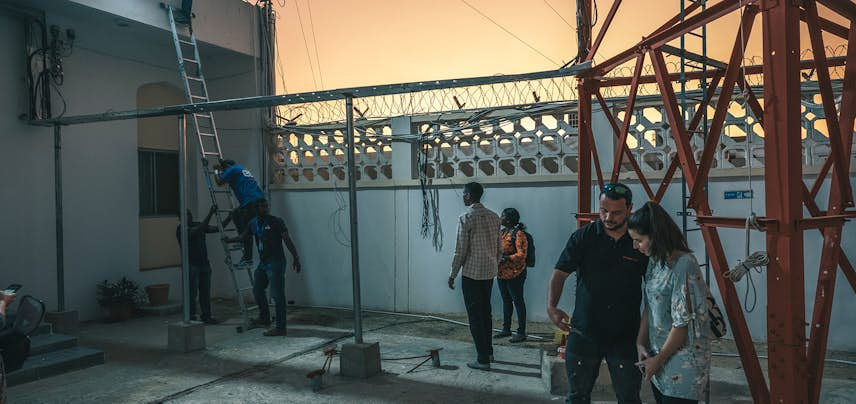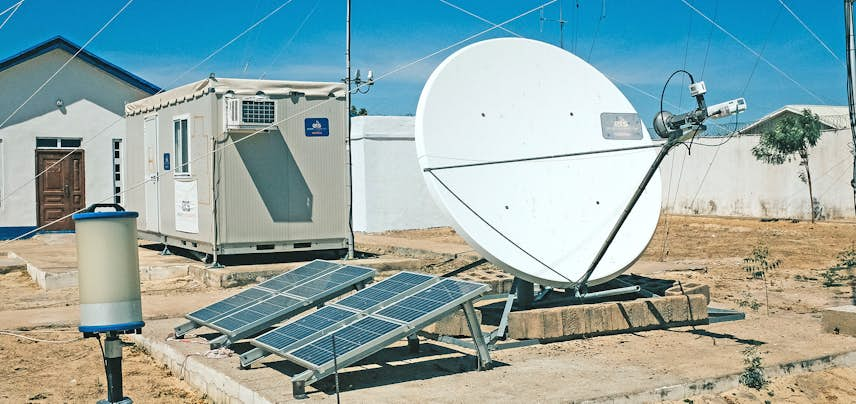Emergency.lu
In 2019, emergency.lu provided services to humanitarian organisations in South Sudan, the Central African Republic, Nigeria, Niger, Chad, Venezuela, the Bahamas and Mozambique at the request of the World Food Programme (WFP), the ETC (emergency telecommunications cluster), the United Nations High Commissioner for Refugees (UNHCR), UNICEF and the European Commission. Where necessary, the services were also accessible to local authorities and the affected population.
35 terabytes (35,000,000 MB) of data were transferred by the emergency.lu satellite links in 2019, an increase of 15 terabytes over 2018.
Two emergency interventions were carried out in 2019, when Cyclone Idai hit Mozambique in March and in response to the destruction caused by Hurricane Dorian in the Bahamas. Seven volunteers from the CGDIS group responsible for humanitarian missions were deployed during these two missions. In addition, two new deployments of long-term satellite modules were carried out in Venezuela.
Emergency.lu has been certified as capacity in the European Union’s European Civil Protection Pool, representing a tangible expression of European solidarity. The module was activated by the European Emergency Response Coordination Centre (ERCC) in Brussels during the emergencies in Mozambique and the Bahamas.

